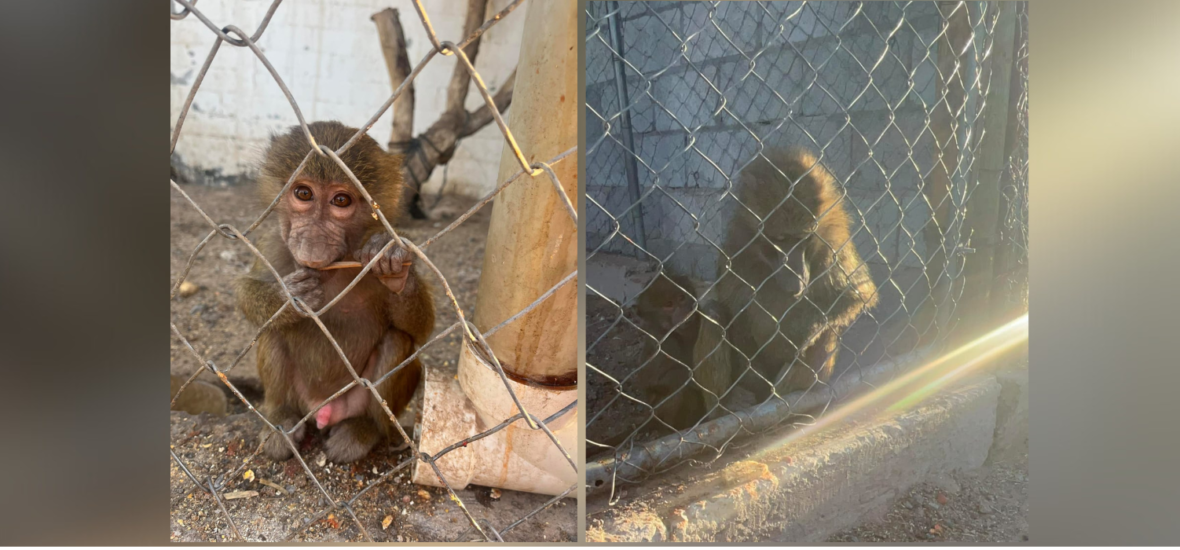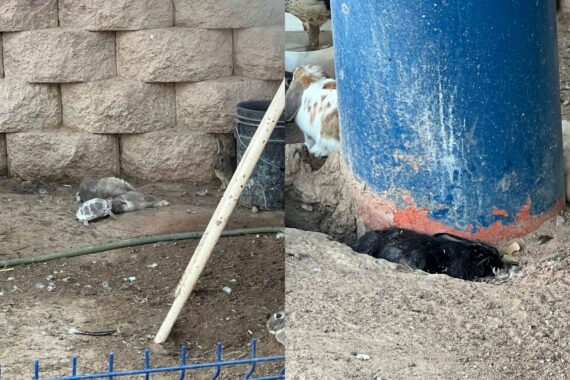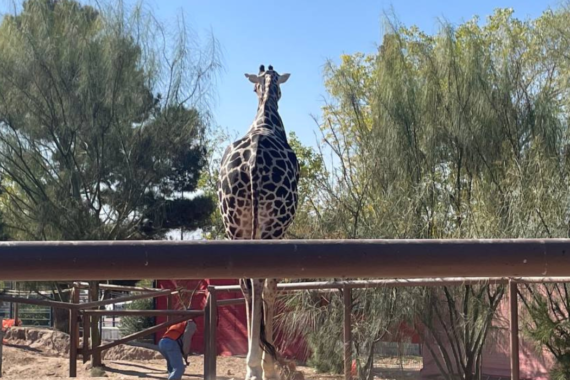Translated by Jesús Ronquillo / Circuito Frontera
Through a complaint in our social networks, a citizen alerted us about the bad conditions that animals live in the restaurant “El Arrancadero”, located next to the Central Park in Ciudad Juarez.
Click here for the Spanish version
According to the report, the place has monkeys, horses and a wildcat in deplorable conditions, apparently without receiving the necessary care.
The complainant attached photos and videos showing the deplorable situation of these animals, and requested intervention and inspection by the competent authorities.
Good evening, I want to bring to your attention that in the restaurant el Arrancadero in the city of Juarez, there are animals in poor condition, injured, apparently they are not with proper care I send video of constancia, there are monkeys 🙉 and horses hurt, very sad wild cat, should please go to check the place ! It is located behind the central park. I hope they can do something for these animals,” said the complainant.
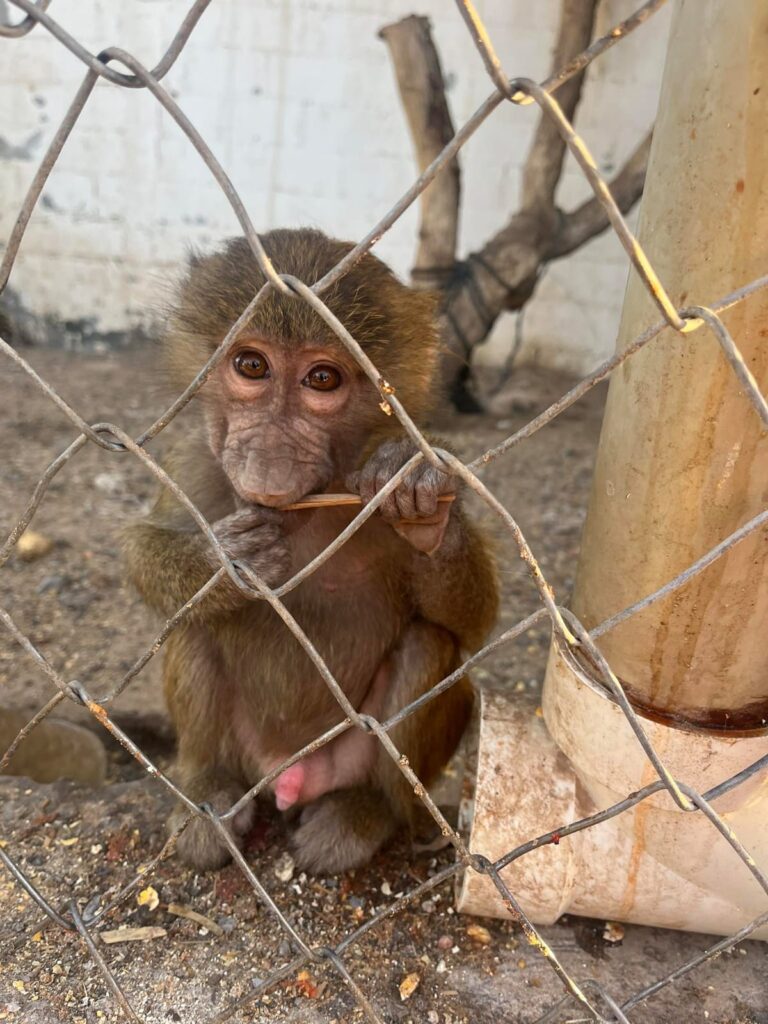
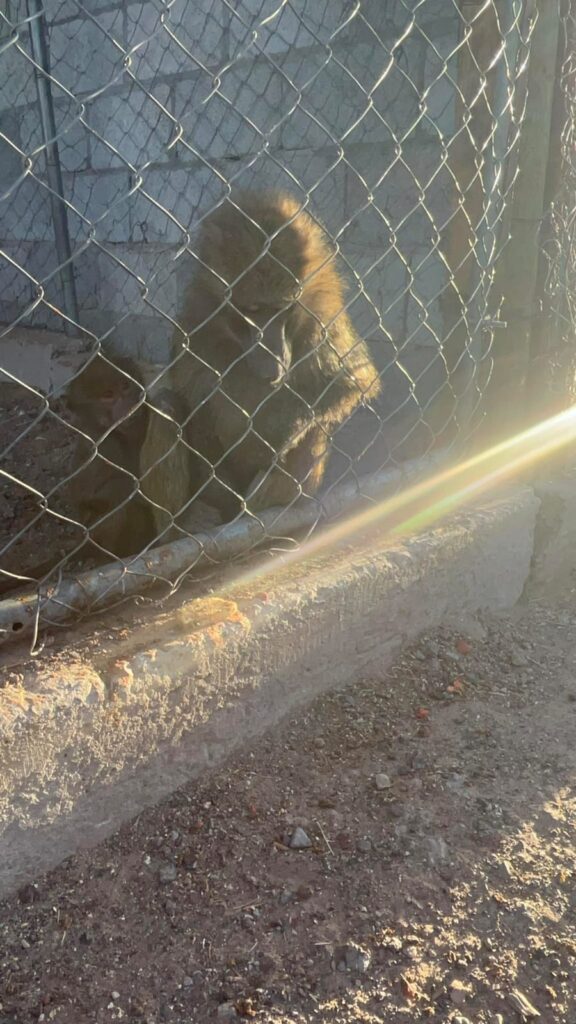
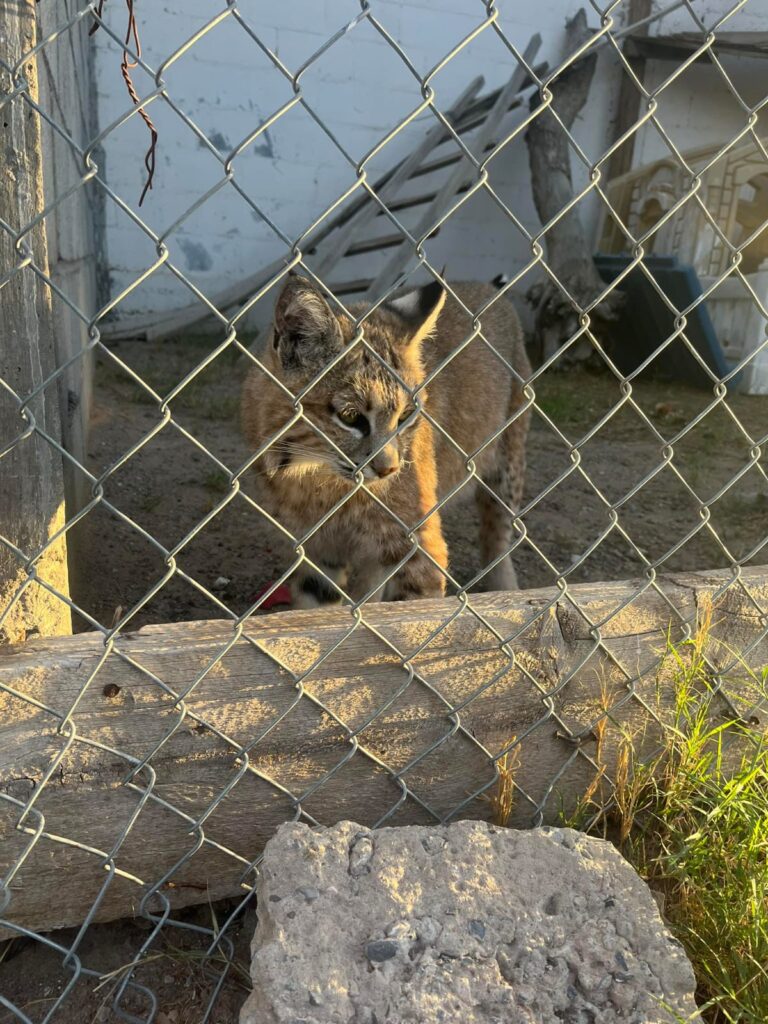
However, it should be noted that this is not the first time that animals have been reported mistreated in this restaurant, owned by Leopoldo “Polo” Canizales, former PRI councilman of the 2007-2010 City Council, headed by Mayor José Reyes Ferriz, and coordinator of Directorates in the 2010-2013 Administration of municipal president Héctor Murguía Lardizábal.
Just in 2013, the Federal Attorney’s Office for Environmental Protection (PROFEPA) initiated an administrative proceeding against the restaurant for keeping deer in captivity.
Roberto Chávez, a member of Movimiento Animalista de Ciudad Juárez, said that these types of establishments with zoo-style animals should be more regulated, because they operate within the “shackles” of current laws and agreements.
He said that an example of this is the agreement between Chihuahua and SEMARNAT to assume responsibilities for wildlife, which empowers SEDUE to issue permits on behalf of PROFEPA/Dirección de Vida Silvestre, in the border area, which makes it even easier to acquire these wild specimens.
“This is in addition to the lack of regulations and periodic inspections, either by the Directorate of Ecology or SEDUE or PROFEPA, which is directly responsible for the issue, and they are not carried out. They only work based on citizen complaints and sometimes it is difficult for people to dare to denounce,” he said.





